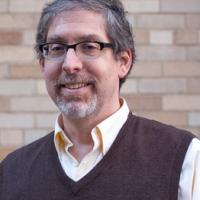Faculty
Lewis Ziska
- Associate Professor of Environmental Health Sciences, Interim Director
Dr. Ziska is a Plant Physiologist formerly with the USDA's Agricultural Research Service. He is a leading expert on the effects of climate change on plants and agriculture and has published over 100 peer-reviewed research articles related to climate change and rising carbon dioxide that address: agriculture and food security; invasive species; and plant biology and public health. Dr. Ziska has contributed to several United Nations Intergovernmental Panel on Climate Change (IPCC) reports, and authored numerous climate change publications and books, including Climate Change and Food Security in the 21st Century: Our Daily Bread and Invasive species and Climate Change.

Maria Diuk-Wasser, PhD
- Associate Professor of Ecology, Evolution and Environmental Biology
Dr. Maria Diuk-Wasser studies the ecology, evolution and epidemiology of vector-borne pathogens, in particular those transmitted by ticks such as the Lyme disease bacterium. Her research focuses on how anthropogenic environmental change, such as climate and land use change, influence human disease risk by altering the complex interactions among pathogens, vectors and hosts. Dr. Diuk-Wasser uses a combination of laboratory transmission experiments, molecular tools, field studies, and mathematical and statistical modeling to identify the factors driving pathogen transmission, persistence and human infection risk. Her current focus is on how climate-driven tick behavior and infection dynamics in natural hosts affect local pathogen abundance, diversity and geographic spread.

Darby Jack, PhD
- Assistant Professor of Environmental Health Sciences
Dr. Darby Jack studies environmental health risks in developing countries, the health impacts of climate change, and the role of the urban environment in shaping health. For the last several years his primary focus has been the health effects of exposure to indoor air pollution from biomass fuels. With support from the Center for Environmental Health in Northern Manhattan, he has helped to develop a Columbia-wide biomass working group, which coordinates and supports interdisciplinary research on the topic. These collaborations have given rise to current efforts to measure the health benefits of clean cookstoves in Ghana, Kenya, and India. He holds a Ph.D. from Harvard University and an undergraduate degree from Williams College.

Marianthi-Anna Kioumourtzoglou
- Associate Professor of Environmental Health Sciences
Dr. Marianthi-Anna Kioumourtzoglou is an environmental engineer and an environmental epidemiologist. Her research focuses on assessing the impact of ambient air pollution exposures on human health. She is very interested in exploring statistical issues related to air pollution epidemiology, such as quantifying and addressing exposure measurement error and assessing exposure to mixtures. Furthermore, her research also involves exploring life-style, neighborhood and weather-related factors that change vulnerability to air pollution exposures.

Kim Knowlton, DrPH
- Senior Scientist at National Resource Defense Council, Assistant Clinical Professor of Environmental Health Sciences, Chair of Global Climate Change and Health Topic Committee of American Public Health Association
Dr. Kim Knowlton’s research focuses on the health effects of climate change; advocating for strategies to prepare for and prevent these impacts, especially for our most vulnerable communities; and making health a more central feature of national, state, and local climate change adaptation plans. She has researched heat- and ozone-related mortality and illnesses; connections between climate change, pollen, allergies and asthma, as well as infectious diseases like dengue fever; the health costs of climate change; and domestic and international climate-health preparedness strategies. She holds a Master’s degree in Environmental and Occupational Health Sciences from Hunter College, and received her Doctorate in Public Health from Columbia University.

Terry McGovern, JD
- Harriet and Robert H. Heilbrunn Professor and Chair of Population and Family Health
Professor McGovern brings expertise in the intersection of health, human rights and environmental justice. From 2006 until 2012, she was a Senior Program Officer at the Ford Foundation, where she worked in New Orleans post hurricane Katrina. She has also done work related to the legality of non-disclosure agreements and the role of indigenous women in tribal councils. Professor McGovern is leading a new, School-wide initiative on Global Health Justice and Governance to identify transformative opportunities to solve complex public health challenges in environmental health, food, and gender. Professor McGovern also developed and teaches a course on Environmental Justice and Advocacy, looking at the disproportionate burdens of environmental contamination and resultant health disparities affecting marginalized communities across the U.S. and globally.

Matthew Neidell, PhD
- Associate Professor of Health Policy and Management
Dr. Matt Neidell’s research focuses primarily on 1) understanding how individuals respond to changes in pollution, with an emphasis on understanding the role of public information in affecting these responses, and 2) how pollution affects a wide range of outcomes, including hospitalizations, mortality, school absences, and labor market outcomes. A current line of research focuses on the impacts of air pollution on the productivity of agricultural workers.

Robbie M. Parks, PhD
- Assistant Professor of Environmental Health Sciences
Dr. Robbie M. Parks earned his PhD from Imperial College London and an undergraduate degree in physics from the University of Oxford. He is an environmental epidemiologist whose primary interests are in understanding the impact that climate, weather, and air pollution has on mortality, nutrition, and disease outcomes, and how these impacts may be different in sub-groups of a population. He is also interested in developing new (particularly Bayesian) statistical methods, relevant to these concerns. In summer 2017, during his studies, he interned at the World Meteorological Organisation, a constituent part of the United Nations, in Geneva, Switzerland. While interning, he became a founding member of the Global Heat Health Information Network.

Frederica P. Perera, DrPH, PhD
- Professor of Environmental Health Sciences, Director of the Columbia Center for Children’s Environmental Health, Director of Disease Investigation Through Specialized Clinically-Oriented Ventures in Environmental Research (DISCOVER) Center
Dr. Perera is internationally recognized for pioneering the field of molecular epidemiology, utilizing biomarkers to understand links between environmental exposures and disease. Currently, she and her colleagues are applying advanced molecular and imaging techniques within longitudinal cohort studies of pregnant women and their children, with the goal of identifying preventable risk factors for developmental disorders, asthma, obesity and cancer in childhood. A focus of her research is the impact of prenatal and early childhood exposure to toxic pollutants from fossil fuel burning on neurodevelopment and health of children. She has written about the special vulnerability of the developing fetus and child to both toxic pollutants and CO2-related climate change, and the importance of accounting for these health costs as a co-benefit of reducing dependence on fossil fuel.
Links:

Sen Pei
- Assistant Professor of Environmental Health Sciences
Sen Pei studies transmission dynamics of infectious diseases using mathematical models and computational tools. His recent studies focus on the spatial spread of influenza, dengue, and COVID-19, as well as the transmission of antimicrobial-resistant pathogens in health care systems. His goal is to better understand the environmental, social, and ecological drivers of disease transmission, to improve surveillance, forecasting, and control of infectious outbreaks. Previously, he served as a research scientist in Dr. Jeffrey Shaman’s lab. He earned his PhD from Beihang University in China.

Jeffrey Shaman, PhD
- Professor of Environmental Health Sciences
Dr. Jeff Shaman’s background is in climate, atmospheric science and hydrology, as well as biology. Dr. Shaman studies the environmental determinants of infectious disease transmission. In particular, he investigates how hydrologic variability affects mosquito ecology and mosquito-borne disease transmission, and how atmospheric conditions impact the survival, transmission and seasonality of pathogens. More broadly, Dr. Shaman is interested in how meteorology affects human health. Dr. Shaman is now working to develop systems to forecast infectious disease outbreaks at a range of time scales. In addition, he studies a number of climate phenomena, including Rossby wave dynamics, atmospheric jet waveguides, the coupled South Asian monsoon-ENSO system, extratropical precipitation, and tropical cyclogenesis.
Links

Perry Sheffield, MD, MPH
- Assistant Professor of Pediatrics and Environmental Medicine and Public Health at Icahn School of Medicine at Mount Sinai
Dr. Perry Sheffield completed the Pediatric Environmental Health Fellowship at the Mount Sinai School of Medicine after graduating from the Medical College of Georgia and then training in Pediatrics in the Harriet Lane Program of Johns Hopkins University. She conducts both qualitative and quantitative research on the health impacts of climate change and public understanding of these issues with a particular focus on children. From 2008 to 2012, she co-instructed the Mailman course Public Health Impacts of Climate Change with Dr. Kinney.

Cecilia Sorensen, MD
- Director of the Global Consortium for Climate and Health Education, Associate Professor of Environmental Health Sciences
Cecilia Sorensen conducts research on the links between climate change and health, including studies on how wildfire smoke is increasing ICU admissions, the links between heat stress and chronic kidney disease, and how climate change threatens to widen existing gender-based health disparities. She has served as an author for the U.S. Fourth National Climate Assessment and serves as a technical advisor for the Lancet Climate and Health U.S. Policy Brief. In 2017, she was named the first Climate and Health Science Policy fellow through a joint program between the National Institute of Environmental Health Sciences and the University of Colorado. She is a member of the Colorado Consortium for Climate Change, a scientific advisor for the Citizens Climate Lobby and the course director for the nations' first medical school course on climate change and human health. She also co-directs the National Climate-Health Fellowship program at the University of Colorado, a post-residency training program for physicians. She earned her MD at Drexel University College of Medicine and completed residency training in emergency medicine at Denver Health.
Links:

Wan Yang, PhD
- Assistant Professor of Epidemiology
Dr. Yang is trained as an environmental engineer and infectious disease modeler, with further expertise in epidemiology, statistics, and computer science. Broadly, she is interested in understanding how infectious diseases spread through the population, as well as methods to model and predict these epidemics. Her recent work applies mathematical modeling and Bayesian inference methods to study the transmission dynamics of influenza, Ebola, and measles. She also develops forecast systems to predict outbreaks of infectious diseases. In addition, Dr. Yang studies how climate and environmental factors influence the transmission of influenza, its seasonality, and the underlying mechanisms.












